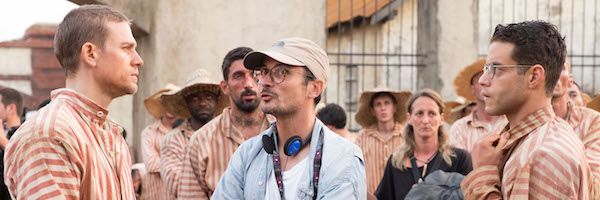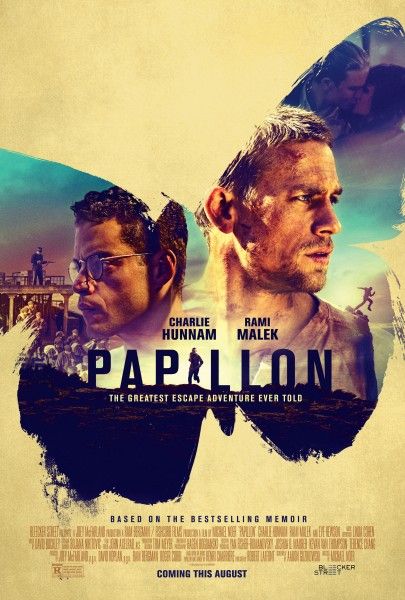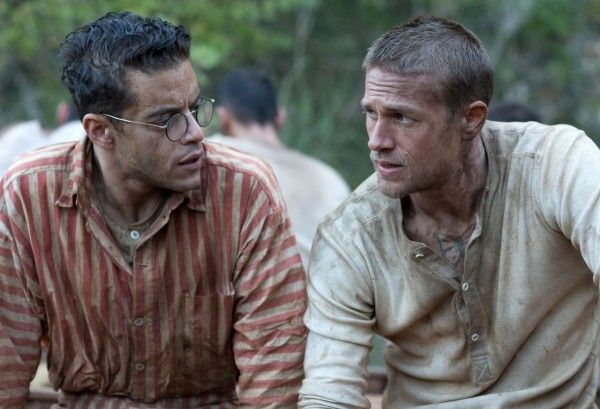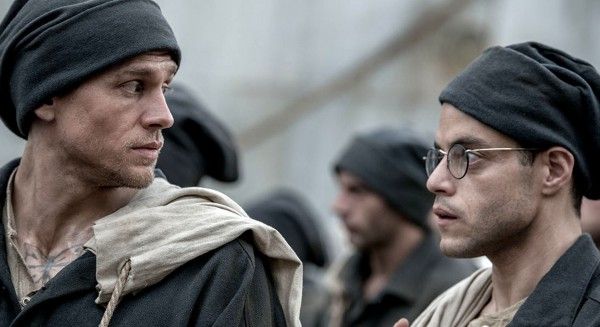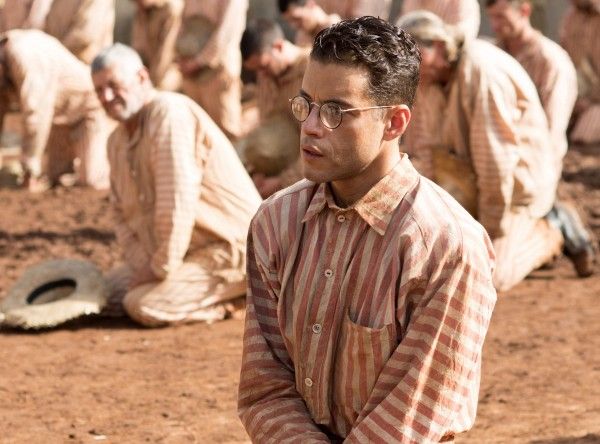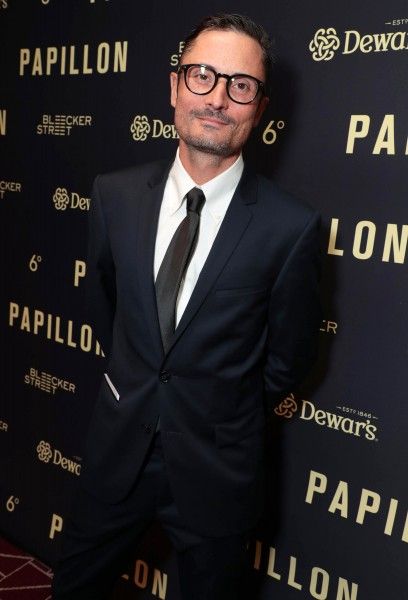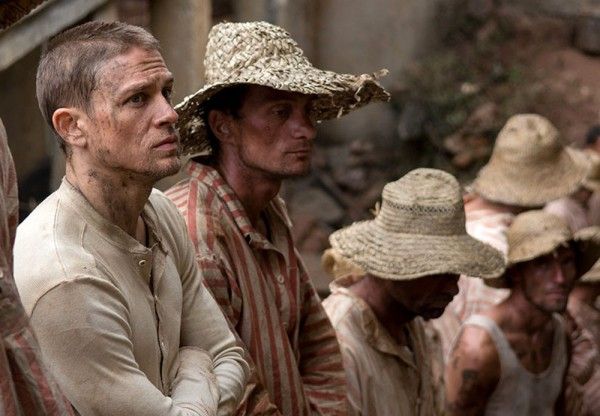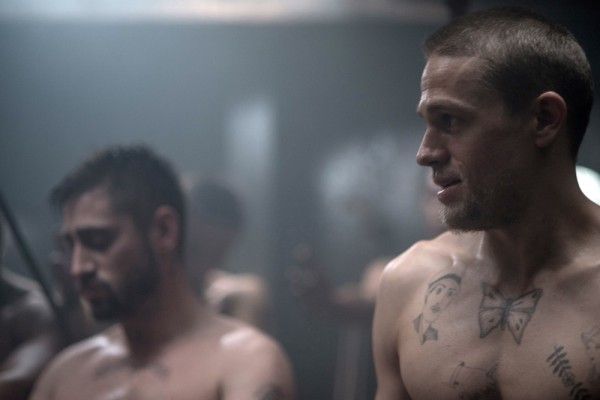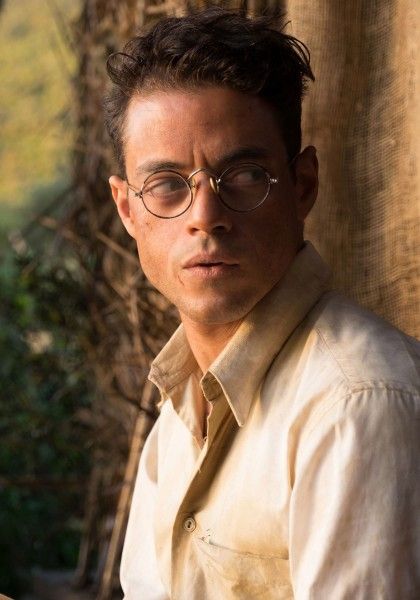From director Michael Noer and based on the international best-selling autobiographical books from Henri Charrière, the prison drama Papillon follows the epic and harrowing tale of a safecracker from the Parisian underworld, known as Papillon (Charlie Hunnam, in a compelling stand-out performance), who is framed for murder and condemned to life in prison on Devil’s Island. Unbreakably determined to regain his freedom by escaping, Papillon forms an unlikely bond with convicted counterfeiter Louis Dega (Rami Malek, in an equally compelling performance), who agrees to finance what will inevitably be a harrowing escape, in exchange for his own protection.
At the film’s Los Angeles press day, Collider got the opportunity to sit down and chat 1-on-1 with filmmaker Michael Noer, who talked about why he decided to remake Papillon, the bond between Papi and Dega, why casting was so crucial, the biggest production challenges that they had to contend with, and editing the film down to 2 hours and 20 minutes from 3 hours and 30 minutes. He also talked about premiering his next film, Before the Frost, in September at TIFF, his desire to do more English-language films, the challenge of documentaries, and how he’d like to also direct a TV project.
Collider: This seems like it must have been such a challenging film to make, with never-ending obstacles. What made you want to direct Papillon?
MICHAEL NOER: In many ways, you could say that I’ve done a prison movie before, but that was very bleak, and it was certainly not about escape. If I was going to revisit the prison genre, it had to be something different, and then this came along, which is an adventurous prison movie. But at that time, I didn’t necessarily know how adventurous that would actually be. In every adventure, there’s a lot of dragons that you have to overcome and mountains you have to climb over, and there certainly was in this production, as well. It was great and it was huge, but I’m so proud to be able to have made something that I consider a real Hollywood production, in the tradition of old Hollywood because it’s character-based. For me, as a film buff, I consider it a great mix of the extravagance of a film, but also a character study.
This is a prison movie, but you also have so much humanity in this, with the relationship between these two men.
NOER: That was also the core and the reason for being attracted to it. Working as a foreign director and visiting L.A. and reading different scripts, not that many films have come along that has this bromance feel to it, and this really had that. That was the main reason it appealed to me. It’s so seldom that it’s put within the realm of a genre film, which I thought was great.
What were the biggest production challenges, in getting something like this going?
NOER: I have to say that I’m only the director. Charlie [Hunnam] had to endure hunger for 12 weeks, or even more, and he isolated himself. And then, they were trying to escape through cold rain. Almost nothing in the film is computer generated. Everything was really built. We were filming outside, so we were dependent on the weather and we were at the mercy of God. Everybody did a great job, creating this, which wasn’t done in post, but in camera. I’m very proud of this being possible.
When you were in the middle of dealing with weather that you have no control over, were there times when you wondered what you had gotten yourself into?
NOER: Many times. But I think you get those crises with any movie or with any relationship. When you’re in pre-production, it’s like you’re engaged, but not quite married yet. And then, you get married and get into production, and it’s, “Oh, my god, did I make the right choice, with all of those kids and the mortgage?” It really is a relationship that you have with the film. You always question your love of the film, and you always questioning the cause, but you keep on going because there’s such strong DNA. Charlie and Rami [Malek] were able to always remind us of the unbreakable bond between these two men, who are so different. When you see Rami and Charlie in real life, they’re so different, but every time I saw them in their prison uniform, I was like, “Yeah, that’s what this is about.”
Did you know what Charlie Hunnam was going to put himself through for this? Were those conversations you had, or was that something he just went off and did?
NOER: Of course, we talked about it because it wouldn’t really have worked, if he had gotten the idea that he wanted to gain weight, so there was some creative collaboration. But you can really only agree on so much because it really is the actor who has to do it, himself. It really is the players on the field that have to do it. As the coach, I want to win, but the team is the one that has to do it, so all of the credit goes to the actors. I really felt that the locations were co-directing with me, and that was really great. And I always had the book in my back pocket, which describes how they were chained, how they were lying, and why Papi was in the corner. He wants them to lie in the corner because that’s where you have the best chance of defending yourself. The corner means that you have less directions from where you could be attacked. Even though it’s nothing that’s said out loud in the film, all of these instinctive researched elements are part of the film. That’s what I appreciate the most, that we were able to get those things in. And also, the way they transport money was a huge ordeal in the book.
Because this is such an odd pairing of these two characters and actors, it seems like casting would have been so crucial. How did you come to Charlie Hunnam and Rami Malek?
NOER: I was just so baffled, so amazed and so happy that Charlie said he’d seen one of my films and that he really liked it. He liked my second film, called Northwest, which was a gangster movie. His approach to turning filmmaking into a physical experience is just totally in line with how I think and look at films. He was like meeting a brother from another mother. And Rami is a unicorn. He’s such a unique figure that you’d have to be blind to not be immediately intrigued by him. And then, when you put them together, it’s self-explanatory. It’s great. They’re both very bright young men. It’s a buddy movie, but it’s more of a love movie. If you cast a buddy movie, you want it to be believable that they’re friends, but they’re not supposed to be friends. They’re not even supposed to like each other. What we always talked about was that, if Dega and Papi met each other at a Parisian bar, they would never, ever talk to each other, and if they did, it would only be to insult each other. But they end up molding together and becoming one. I thought that was a beautiful, simple story filled with hope and, to this day, still has a lot to say about the world we’re living in now, which has so much division and so many people fighting each other because of differences, and they can’t find a way to work together.
This movie is about 2 hours and 20 minutes. How long was your first cut, and did you have to cut a lot out to get to what we see now?
NOER: We had to cut out a lot, but I don’t think any movie has ever been made where you didn’t cut out a lot. That’s always a process. It was a joy to edit. Every editing process is difficult, but the DNA of the film already talked to us, from the beginning. So, even though we had a rough cut, which was about 3 hours and 30 minutes, the DNA was still there. It was always their relationship, and it was always Papi, going from being a young man who’s arrogant to being an older man that knows that he knows almost nothing.
It’s really interesting, how much you feel for these men, knowing that they are actually criminals, because of the conditions they’re forced to live in.
NOER: It’s a good reminder of how you should approach every human being. It’s all about perspective. When you put people through enough torment and pain, and you start to learn about them, there’s a chance that you’ll start loving them. That’s why I think it’s attractive to make portraits of people who are not initially very likable. That goes for all of the other movies that I’ve made, as well. I’ve made a prison movie, a gangster movie, and a movie about an old lady who’s unfaithful at an elderly home. And I have a premiere at TIFF for a new movie that I’ve done, which is also about quite an asshole. I should talk to a shrink about it.
What is the movie you’re premiering at TIFF?
NOER: The new movie is called Before the Frost, and it’s a Danish movie that takes place in the 1850s. It’s about an old, worn-down farmer who forces his daughter into a arranged marriage to save the rest of his family from hunger. It’s my version of trying to make an American genre Western, in a Scandinavian context.
Do you get nervous the first time you show a film to an audience?
NOER: Yeah, of course. It’s almost like handing your phone to someone, or your diary, or something like that. You’re showing a little part of yourself and you’re hanging out your dirty underwear, but then you start a dialogue, like we’re having. It’s actually just helpful to talk about it because then it becomes a work of its own and you distance yourself a bit from it. I think that’s very healthy.
Are you looking to do more English-language films?
NOER: Yeah, I’d love that. I’m just so happy and I pinch my arm every day, that I have the opportunity to make movies. I think that goes for every filmmaker. Many people think that it’s when you have your premiere or you read the reviews in the paper that you’re most nervous, but you’re actually nervous about being able to make another film. That’s what it’s all about for me, and I’m sure a lot of other directors.
Would you also like to keep doing documentaries?
NOER: Yeah, I wish, but it’s so tough with documentaries. I have the deepest respect for documentary filmmakers because you never know when your end date is. When you’re doing documentaries, it just goes on for years, but it keeps you on the feet, and I like that. I tried to keep on my feet on this one, as well, because we did a little bit of improvisation, here and there. I like that a lot. That probably comes from my documentary background.
There are so many directors now that are taking on TV projects, where they direct an entire season of a TV show. Have you thought about doing something like that?
NOER: Yeah. I’m open to everything, so I’d love to do that. As a viewer, I watch a lot of TV series, as well. Papillon is a film that’s also a great character study. It’s not a TV series, but it has what I think people are looking for in a TV series, which is a character study. That’s sometimes lacking in movies, nowadays. So, for me, it doesn’t matter if it’s a big budget effects movie, a TV series, or a documentary. As long as there is some great character study, I’m in.
Papillon is now playing in theaters.

